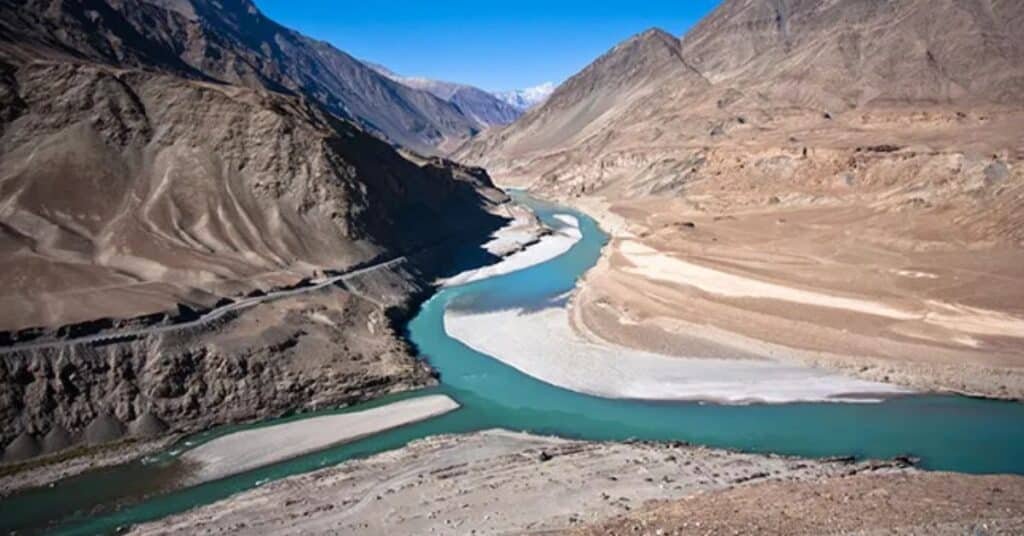ISLAMABAD (Kashmir English): India on Wednesday suspended the Indus Water Treaty (IWT), signed in 1960, with immediate effect, a day after a deadly attack in Indian Illegally Occupied Jammu and Kashmir (IIOJK).
India’s suspension of the Indus Water Treaty, among other measures, came in response to the recent attack in Pahalgam, a popular tourist spot, where at least 26 tourists were killed and 17 others injured.
The IWT was signed on September 19, 1960, in Karachi by then Indian Prime Minister Jawaharlal Nehru and then Pakistani President Field Marshal Ayub Khan.
The treaty, arranged and negotiated by the World Bank, was signed for the fair use of the water available in the Indus River and its tributaries between the two countries.
Experts said that the suspension of the Indus Water Treaty undoubtedly indicates India’s aggression, but it is worth noting here that India cannot unilaterally suspend or terminate this treaty.
As per details, the Indus Water Treaty is an internationally recognized policy and guaranteed agreement. If India unilaterally suspends or terminates the Indus Water Treaty, then questions will also be raised about all the agreements that have been made with other countries.
Can India unilaterally suspend IWT?
Talking to a private news channel, former high commissioner to India Abdul Basit said that suspending the agreement violated Article 12 of the treaty.
Under the treaty, India does not have any legal capacity to suspend or terminate the Indus Water Treaty on its own. Article 12(4) of the treaty gives the right to terminate the treaty only if both India and Pakistan agree in writing.
In other words, to terminate the Indus Water Treaty, a termination agreement would have to be drafted by both states and then ratified by both. There is no unilateral “suspension” clause in the treaty.
If India unilaterally stops following the treaty by giving justifications like “annulment”, “suspension”, “withdrawal”, or “cancellation”, etc., what it means is that it has decided to obstruct the flow of water to Pakistan.
In other words, what India would call “annulment or withdrawal”, Pakistan would call it “violation”.
The question is also what will happen if India blocks Pakistani water downstream, and can it set an example upstream for China? If India tries to block the water of Pakistani rivers, it will not only be a violation of international water law but will also set a dangerous precedent.
According to international law, an upstream country (like India) does not have the right to block the water of a downstream country (like Pakistan), whether the Indus Waters Treaty exists or not.
If India takes such a step, it will establish a new pattern of behavior at the regional level, which can be used as a precedent in international law.
International Relations experts said that China can take advantage of this and can use the same Indian behavior as a basis to block the water of the Brahmaputra River.
India’s unilateral suspension of the treaty is not only a violation of its established mechanisms, such as dispute resolution through the Permanent Indus Commission, impartial experts, or an arbitral tribunal, but also goes against the spirit of the treaty.
The treaty has survived several wars and political tensions in the past, which further strengthens its legal and moral strength.




